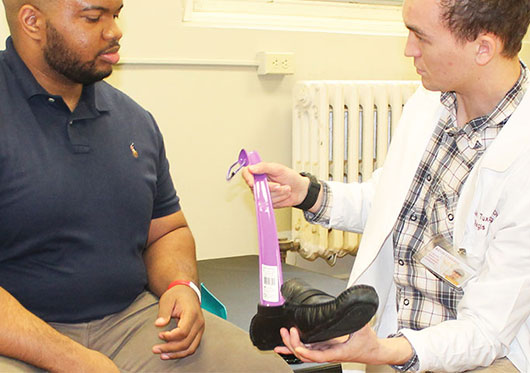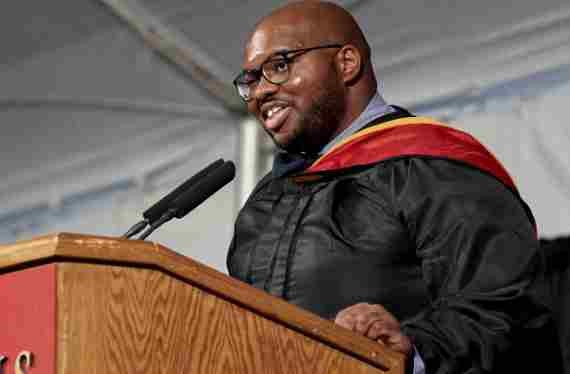Choosing to earn any graduate degree is a big decision. If you’re considering earning a master’s degree in occupational therapy (MSOT), you’ve probably got a lot of questions. You’re asking things like:
- What’s the average salary for an occupational therapist?
- What’s the demand for occupational therapists and is there job security in the field?
- What opportunities can a MSOT provide for your career?
- What kind of skills and experience will earning your degree give you?
Ultimately, what you’re trying to decide is: Will earning my master’s degree in occupational therapy be worth the money, the effort, the time, and the stress that I’ll need to put into earning the degree?
The answer depends on your personal goals and motivations for considering the degree to begin with. Is it a certain salary, job title, or level of job security that you’re looking for? Or is it a more subjective measure like job satisfaction or other personal goals?
Before you apply to a program, ask yourself: Why do I want to earn this degree? Will earning this degree help me achieve the personal and career goals that I’ve set for myself? And, importantly, can I successfully earn this degree while juggling other parts of my life, like work and family commitments? Once you have the answer to these questions, it will be easier to weigh your options and make a final decision.
Below are some of the most common reasons individuals choose to pursue the degree.
1. The degree is required if you want to become a full occupational therapist.
While it’s possible to become an occupational therapy assistant with an undergraduate degree, in order to become a full occupational therapist you are required to earn your graduate degree.
All states require occupational therapists to be licensed to practice. Specific requirements for licensure differ depending on the state that you’d like to practice in, but all require that you pass the national exam administered by the National Board for Certification in Occupational Therapy (NBCOT). In order to sit for the exam, you must have graduated from an accredited occupational therapy degree program.
2. Earning the degree can bring job security.
According to the United States Bureau of Labor Statistics (BLS), in 2016 there were 130,400 occupational therapists in the U.S. Between 2016 and 2026, that number is expected to increase by roughly 31,000—a 24 percent increase compared to an estimated seven percent growth for all occupations.
There’s a few different factors that are causing this increased demand, with the aging Baby Boomer population being one of the biggest driving factors. Aging brings an abundance of conditions and disabilities that affect mobility from arthritis to Parkinson’s disease. It’s only natural that a growing population of elderly citizens will require more care.
All of this is great news for individuals considering a career in occupational therapy, as increased need typically correlates to increased demand, and therefore higher job security.
3. High salaries equals low risk with high return.
Generally speaking, individuals who earn any master’s degree earn an average of 18 percent more over their lifetime than individuals who only have a bachelor’s degree.
For occupational therapists specifically, the difference only becomes even more apparent. According to the BLS, median pay for occupational therapists in 2017 was $83,200 (or roughly $40 per hour), and the highest paid 10 percent earned more than $120,000 per year.
The combination of high wages plus high demand makes the risk associated with borrowing money (if needed) to earn your master’s degree in occupational therapy is dramatically lower than for many other professions.
4. Occupational therapy brings high satisfaction for those looking for a rewarding career.
Being able to be a positive force in the world—being able to make a difference—is often cited as one of the primary reasons that people choose to go into occupational therapy, and why occupational therapists are so satisfied in their careers. Occupational Therapist currently ranks #13 on U.S. News and World Report’s Best Job List for 2019, and comes in at #4 in Business Insider’s list of the best jobs in America.
As an occupational therapist, your aim every single day is to improve lives, restore independence, and enhance the quality of life for your clients. The career allows you to flex your creative muscles, connect with clients in personal, meaningful ways, and work in a wide variety of settings with many different kinds of people.
Finding a Program that Works for You
If you decide that earning a master’s degree in occupational therapy is the right decision for you, the next step is to choose a program that offers the educational experience and learning options that you need to be successful. In addition to academic considerations, it’s also important to understand what fieldwork opportunities will be available to you, as these impart valuable hands-on experience and are required for certification.
At Regis College, the Master of Science in Occupational Therapy (MSOT) involves a close community experience that marries small class sizes, experienced faculty instructors, and challenging academics with unique community-based experiences and fieldwork opportunities, ensuring that students graduate prepared to pass the NBCOT exam.






